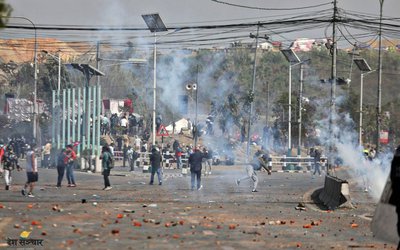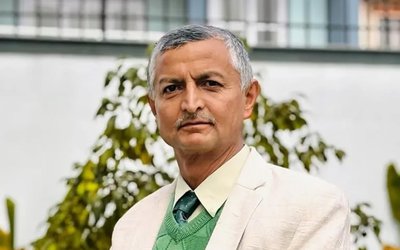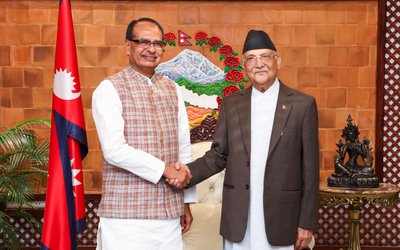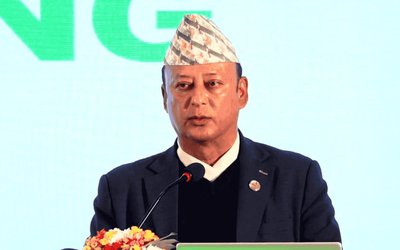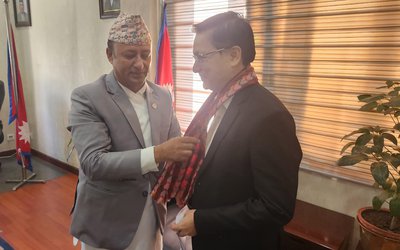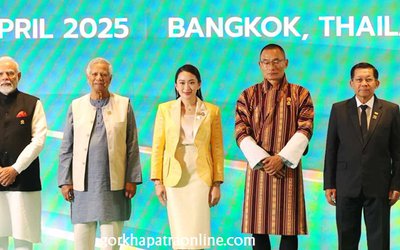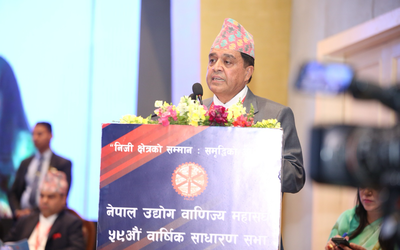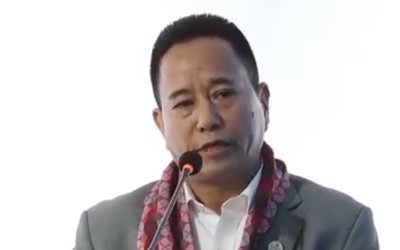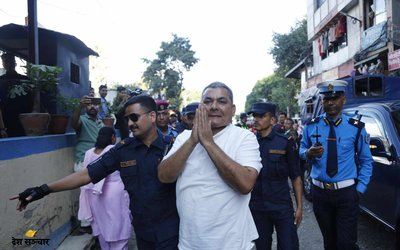
With the fifth round of talks concluded, the members of the Eminent Persons Group of Nepal and India EPG are taking up various bilateral issues, which have many long and short-term implications in the ties between the two countries.
As the members of the Indian side remained quiet, rarely making any of their statement public, the Nepali members briefed the press as if they determined the Nepal’s policy decisions with India.
When formal diplomatic mechanisms headed by foreign secretaries of both the countries failed to address the crucial issues of Nepal and India relations, how could one expect to deal with such complex issues from a non-formal entity, which does not even have a dedicated channel of communication with the government?
Constituted three years ago by then UML and Maoist Alliance government led by K.P. Sharma Oli, Nepalese members represented in EPG are ideologically dominated by communists whose views about Nepal’s relations with India are an open secret.
Interestingly, three governments have changed in the last two years, but what has not changed is any member of the communist-dominated Eminent Persons Group (EPG).
Even at a time when the government is led by NC Sher Bahadur Deuba, the EPG composition has not changed. Although any issue related to the border will directly impact the lives of the Madheshi, no party from Madhesh is raising the question.
Interestingly, out of four members represented in EPG, three members have clearly one or the other affiliation with the communist parties, which are known for their anti-Indian stand.
Among four members, representing the Nepalese team, Nilamber Acharya, Surya Nath Upadhyaya, and Dr. Rajan Bhattarai were close to the Communist Party of Nepal at one or the other time. Among the three, Bhattarai is a seating member of parliament representing CPN-UML.
From the Indian side, the members consist of politicians Bhagat Singh Koseri, former chief minister of Uttarakhand, Professor Dr. Mahendra P.Lama, from West Bengal, a professor from Jaipur Dr. B.C Uprety and seasoned diplomat and former ambassador to Nepal Jayanta Prasad.
In dealing with such a strong Indian team, Nepal has even failed to appoint any seasoned former diplomat in the committee. With so many professional diplomats in the Ministry of Foreign Affairs, the government should have picked up some career diplomat to strengthen the committee.
Strangely, no government has taken issue with this publicly or officially even as the members have been discussing Nepal-India 1950 treaty and other agenda with India.
“Even EPG members did not get consent or briefing from prime minister Sher Bahadur Deuba and Foreign Ministry before pushing Nepal’s agenda,” said a close aide of Prime Minister Deuba on condition of anonymity. “We learned from the media about the decision taken by the EPG.”
During the fifth Eminent Persons Group (EPG) meeting that concluded in Kathmandu, Nepali side made a proposal to maintain international standards and ensure scientific management of the border between the two countries.
“No man’s land has encroached from the Indian side. Nepali side is also found to have encroached the ‘no-man's land’ in some places,” said a member of the EPG from Nepal side Dr. Rajan Bhattarai. He said that the Nepali side has proposed removing illegal structures along the border in line with the existing international standards.
While Nepal and India share the border and some associated disputes in different places, the illegal structures built on the no-man's land have also caused the disputes drag on between the two countries.
“We have proposed making the border secure,” said Dr. Bhekh Bahadur Thapa, head of EPG. “Nepal-India border needs to be regulated, not closed, to stop illegal activities along the bordering areas. We need to understand the definition of an open border of the past in the changed context.”
However, Indian representatives did not say anything about the meeting. Even Jayanta Prasad did not come to join in. “We are here to listen to the voice of Nepal and we are ready to do what Nepal wants,” head of Indian team Koseri said.
At a time when Nepal’s foreign ministry and its own institution is capable to handle all kinds of diplomatic issues and elected prime minister, Deuba has his own team, EPG’s stand in the present context is no more than a talking shop.
While making comments and recommending changes, EPG most keep in mind that their recommendations are subject to people’s comment and subject to the acceptability of the government.

Keshab Poudel
Poudel is the editor of New Spotlight Magazine.
- POLITICAL VIOLENCE: Culture of Impunity
- Apr 11, 2025
- PM OLI MEETS PM MODI: No Progress
- Apr 09, 2025
- PM OLI’S THAILAND VISIT: Flip Flop
- Apr 08, 2025
- FM Dr. Deuba’s India Visit: Mission Aborted
- Mar 26, 2025
- AMBASSADOR MAEDA TORU: Warm Regards
- Mar 24, 2025
